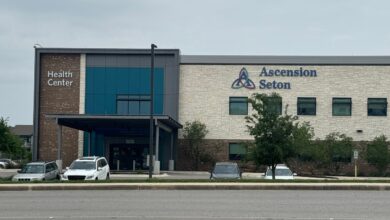AU’s cybersecurity program seeks to help cities protect online infrastructure from persistent threats | Local News

ANDERSON — Water utilities across the U.S. are increasingly at risk for cyber attacks from hackers connected to China, Iran and other nations hostile to American interests, according to a recent warning issued by the Environmental Protection Agency.
The threats highlighted in the agency’s letter have cast renewed attention on a profession that, especially in Indiana, is poised for significant growth in the coming years. The Indiana Economic Development Corp. projects a 3% increase in cybersecurity systems engineers this year, and as many as 20,000 related job openings are expected in the field.
Among that number are IT professionals who work with local governments to safeguard infrastructures across several categories, including public water utilities and emergency communications systems.
Those professionals, according to officials involved in developing curriculum for Anderson University’s specialized cybersecurity degree program, will need to enter the workforce prepared to stay ahead of hackers in a variety of online environments.
“There’s an idea that municipalities are not prepared for what’s coming down the pike, but they also don’t necessarily trust the state government or the federal government to come in and help them because they feel like they’re being snooped on or looked down upon,” said David Dungan, the executive director of AU’s Center for Security Studies and Cyberdefense.
“What we’ve proposed is to allow the universities to act like grease between those two entities, using students and student interns to start ramping up their cyber readiness to at least some level.”
Dungan said that the Indiana Office of Technology periodically provides risk assessments to local governments, but those entities often have few resources to tackle the problems that are uncovered. Still, around-the-clock monitoring of computer systems is a priority for local municipalities, including the city of Anderson, which has five full-time employees in its IT office and plans to add a sixth shortly.
“We also utilize a secure third party, which monitors countywide systems and sends alerts which our IT division uses to stop attacks,” said Neal McKee, superintendent for the City of Anderson Water Utility.
McKee added that the city receives and follows regular advisories from the Department of Homeland Security to protect physical structures, including wells and distribution lines.
Anderson also has four IT employees at city hall and two with the Anderson Police Department. The city uses IT and information systems interns regularly to augment its staffing and, according to Mayor Thomas Broderick Jr., those internships often turn into full-time opportunities upon graduation.
“We are supportive of Anderson University and their cyber program and would undertake interns and new hires from their programs,” Broderick said. He noted that qualifications for IT positions frequently include specialized certifications in networking, hardware, software and specific cybersecurity protocols.
“There are a number of certifications that may apply, depending on the need at the time,” he said.
Dungan said the rapidly evolving nature of artificial intelligence chatbots will perpetuate a virtual chess match between hackers and cybersecurity experts. That means programs like AU’s must be nimble in adapting curriculum to adequately prepare students for unforeseen problems.
“Everybody knows what AI is, but nobody actually knows what AI is,” Dungan said. “It’s a matter of staying close to the ground with those business partners and knowing what they’re seeing, what we need to focus on, and keeping an eye to what’s coming down the pike in six months to a year.
“By doing what we do and teaching (students) the way that we do and preparing them the way that we do, they’re ready to go the day they walk out the door.”
Follow Andy Knight on Twitter @Andrew_J_Knight, or call 765-640-4809.



